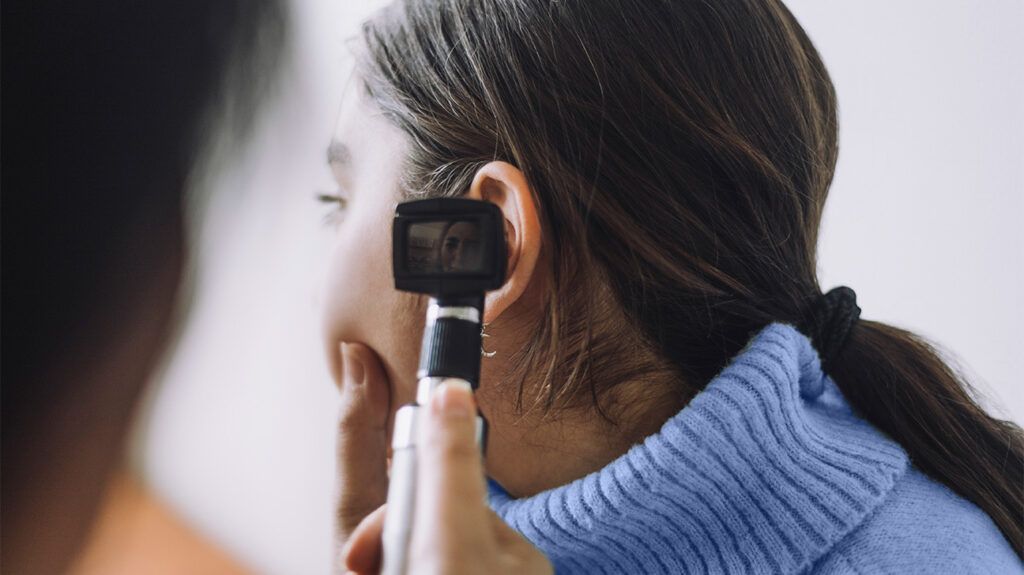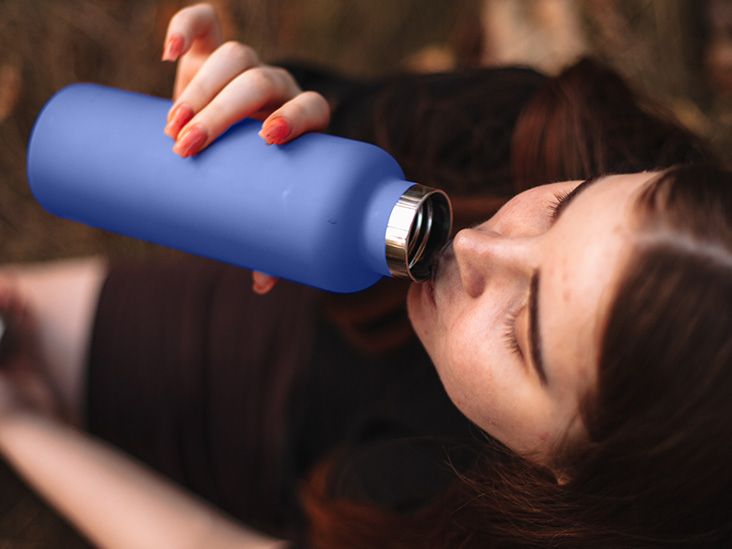There are several possible causes of ear congestion, including sinusitis, allergies, and earwax impaction. Over-the-counter (OTC), prescription, and natural treatments can help treat ear congestion.
Ear congestion refers to a feeling of fullness in the ears. A person may feel that their ears are clogged or blocked up. This can also lead to hearing difficulties, dizziness, and ear pain.
In this article, we discuss different cause of ear congestion and their treatments.

Conditions that lead to inflammation or congestion in the sinuses can also lead to ear congestion.
Examples of conditions that affect the sinuses and the ears include:
Treatment
Treatments for sinus-related ear congestion vary, depending on the underlying cause. Most sinus infections resolve independently, without medical treatment. However, a doctor may prescribe antibiotics if a person has a bacterial sinus infection.
Ear congestion related to sinusitis or viral infections, such as a cold or flu, will typically go away once the underlying condition or cause of inflammation resolves. However, if middle ear fluid develops due to infection, congestion may linger after the active infection, until the fluid clears.
Avoiding irritants and allergens that trigger sinusitis can also help relieve ear congestion.
To manage the symptoms of sinus conditions and ear congestion, a person can:
- Breathe in steam from a bowl of hot water or shower.
- Use a humidifier or vaporizer.
- Place a warm, wet towel over the nose and forehead.
- Use decongestants or saline nasal sprays.
- Take OTC pain relievers, such as ibuprofen or acetaminophen, to relieve pain and swelling.
- Perform nasal irrigation.
Allergic rhinitis, or nasal allergies, occurs when the immune system overreacts to allergens in the environment, such as pollen, dust, or pet dander.
A
- pressure inside the ear
- ear popping
- difficulty hearing
Typical symptoms of allergic rhinitis include:
- sneezing
- runny or stuffy nose
- itchy, watery eyes
- itchy mouth, nose, and throat
- difficulty breathing through the nose
- headache
Treatment
To relieve ear congestion that occurs due to allergies, a person can take allergy medications, such as decongestants and antihistamines.
The
- acupuncture
- nasal irrigation
- butterbur herbal supplements
The NICCIH also list probiotics, honey, and pine bark extract as potential treatment options, but the results of current studies provide conflicting or weak evidence to support their efficacy.
Elevation changes can lead to ear-popping.
This occurs when the air pressure outside the ear is different to the air pressure inside the eustachian tubes. The eustachian tubes are narrow canals that connect the middle ear to the upper throat and nasal cavity.
Changes in air pressure occur during air travel, deep-sea diving, or whenever a person travels to higher or lower altitudes.
Treatment
To relieve ear congestion due to elevation changes, a person can try:
- yawning or chewing gum during takeoff or landing
- wearing a filtered earbud that equalizes air pressure
- using an OTC decongestant spray
If at all possible, a person should descend or ascend slowly to allow the eustachian tubes time to equalize the pressure in the middle ear.
They can also try performing the Valsalva and Toynbee maneuvers.
Valsalva maneuver
- Take a deep breath.
- Pinch the nose shut.
- Try to blow air gently through the nose while keeping the mouth shut.
A person should be cautious when performing the Valsalva maneuver to avoid rupturing the eardrum.
Toynbee maneuver
- Pinch the nose closed.
- Close the mouth.
- Try swallowing.
A person may find that it is helpful to swallow a mouthful of water.
Earwax, also known as cerumen, is a waxy substance that the ear canal produces.
Having some earwax is good. It helps clean and protect the ear canal. However, too much earwax can lead to a condition called cerumen impaction.
People with excess earwax or cerumen impaction may experience the following symptoms:
- difficulty hearing
- ear discomfort
- itching
- a feeling of fullness in the ear
- tinnitus, or ringing in the ear
- earache
- dizziness
- ear infection
- ear drainage
If a person’s ear drum is healthy and intact, they can remove excess earwax at home with the following tips:
Hydrogen peroxide ear drops
When using ear drops, it is important to follow the instructions on the packaging. Typically, a person inserts
Almond or olive oil
According to the United Kingdom’s National Health Service (NHS), a person can put two or three drops of almond or olive oil in the ear. They should do this twice per day for a few days.
Over 2 weeks, the earwax should fall out of the ear, especially during sleep when a person is lying down.
Irrigation
A person may prefer a healthcare professional to perform ear irrigation. However, they can perform an ear irrigation at home.
Unsafe treatments
It is important to note that people should not perform ear candling. This is because it is
Ear infections can also lead to ear congestion. Ear infections occur when a bacterial, viral, or fungal infection develops in the middle ear. The infection leads to inflammation and fluid accumulation in the eustachian tube. Fluid buildup can cause a feeling of fullness or congestion in the ear.
Anyone can get an ear infection. However, they are
- earache that worsens when lying down
- fever
- dizziness
- loss of balance
- difficulty hearing
- headache
Treatment
Some middle ear infections resolve on their own, without medical treatment. However, bacterial middle ear infections may require antibiotics. Plenty of rest and drinking clear fluids, such as water or tea, may help an ear infection heal faster. A person can use OTC medication, such as acetaminophen or ibuprofen, to relieve pain and fevers.
Doctors can treat fungal outer ear infections with topical antifungal medications. They can also remove fungi with a small vacuum. This procedure is known as ear aspiration.
Meniere’s disease is an inner ear disorder that causes severe dizziness, or vertigo, tinnitus, and ear congestion.
The symptoms of Meniere’s disease occur when fluid builds up in the labyrinth of the inner ear. The labyrinth consists of semicircular canals that help regulate balance, and the cochlea, which is responsible for hearing.
The exact cause of Meniere’s disease remains unknown. However, the
- infections
- allergies
- autoimmune conditions
- genetics
Treatment
People can treat Meniere’s disease with prescription drugs, such as:
- meclizine
- diazepam
- lorazepam
- gentamicin injections
- diuretics
Alternative treatments for Meniere’s disease include:
- limiting salt intake
- limiting caffeine, chocolate, and alcohol intake
- air pressure treatment
- cognitive behavioral therapy
- surgery to decompress the endolymphatic sac inside the inner ear
Other causes of ear congestion include:
- Acoustic neuroma: This is a noncancerous tumor that develops on the nerves in the inner ear.
- Cholesteatoma: This is a benign, but locally aggressive skin growth that develops behind the eardrum.
- Temporomandibular Joint (TMJ) problems: This includes a range of conditions that affect the joints in the si0des of the jaw that open and close the mouth. TMJ disorders can occur as a result of abnormal jaw alignment, injury, or teeth grinding.
People can often treat ear congestion with home remedies and OTC medications.
However, a person may want to speak with a doctor about their ear congestion if:
- their symptoms persist despite using at-home or OTC treatments
- they develop a fever
- they experience fluid drainage from the affected ear
- they experience dizziness or loss of coordination
- they have severe ear pain
Ear congestion can resolve on its own. Causes of ear congestion can include earwax compaction, changes in altitude, infections, and allergies.
While some causes of ear congestion do not require medical intervention, people should contact a doctor if their symptoms persist or if they experience symptoms of a severe ear infection, such as:
- fever
- fluid drainage
- severe ear pain
- loss of hearing


